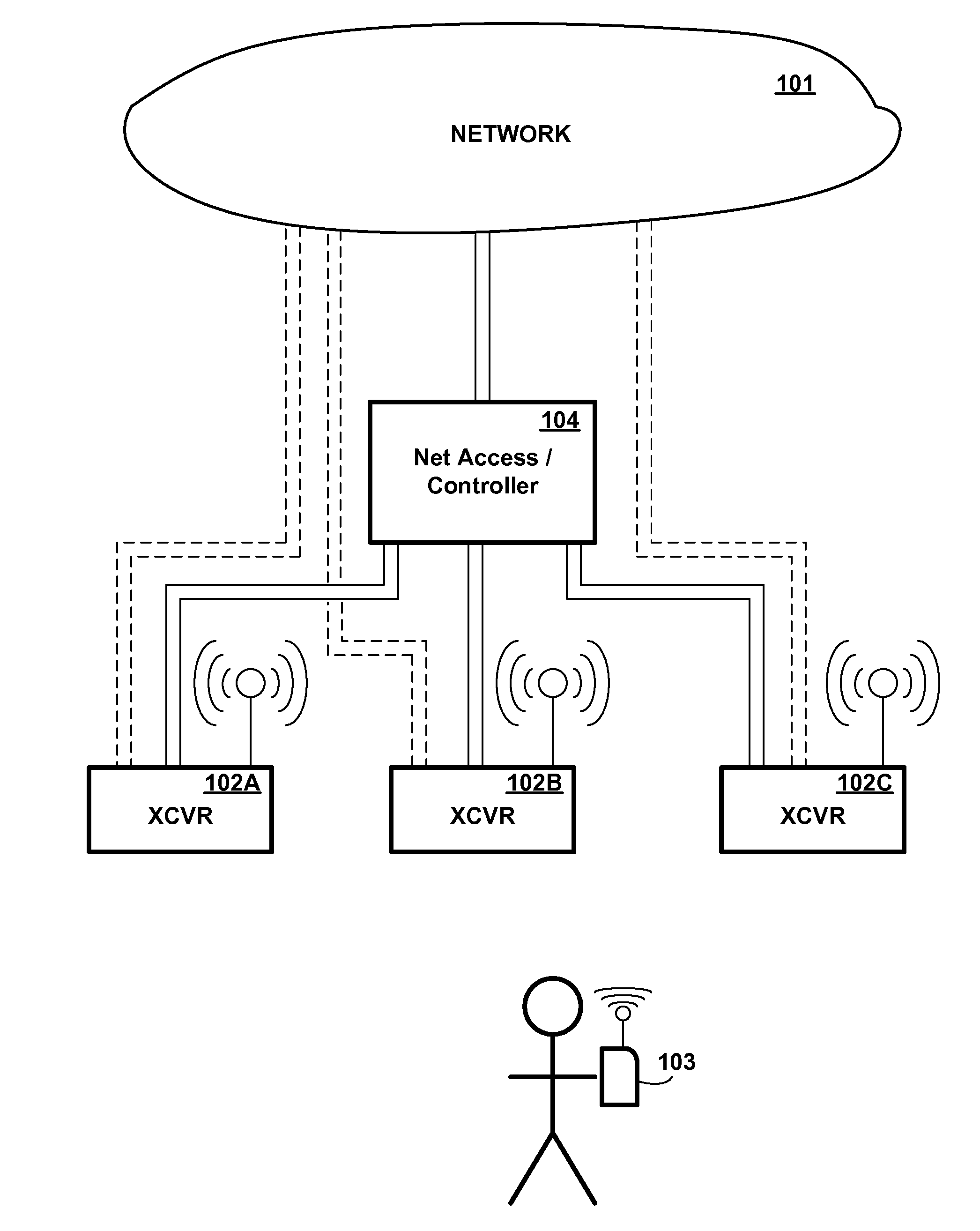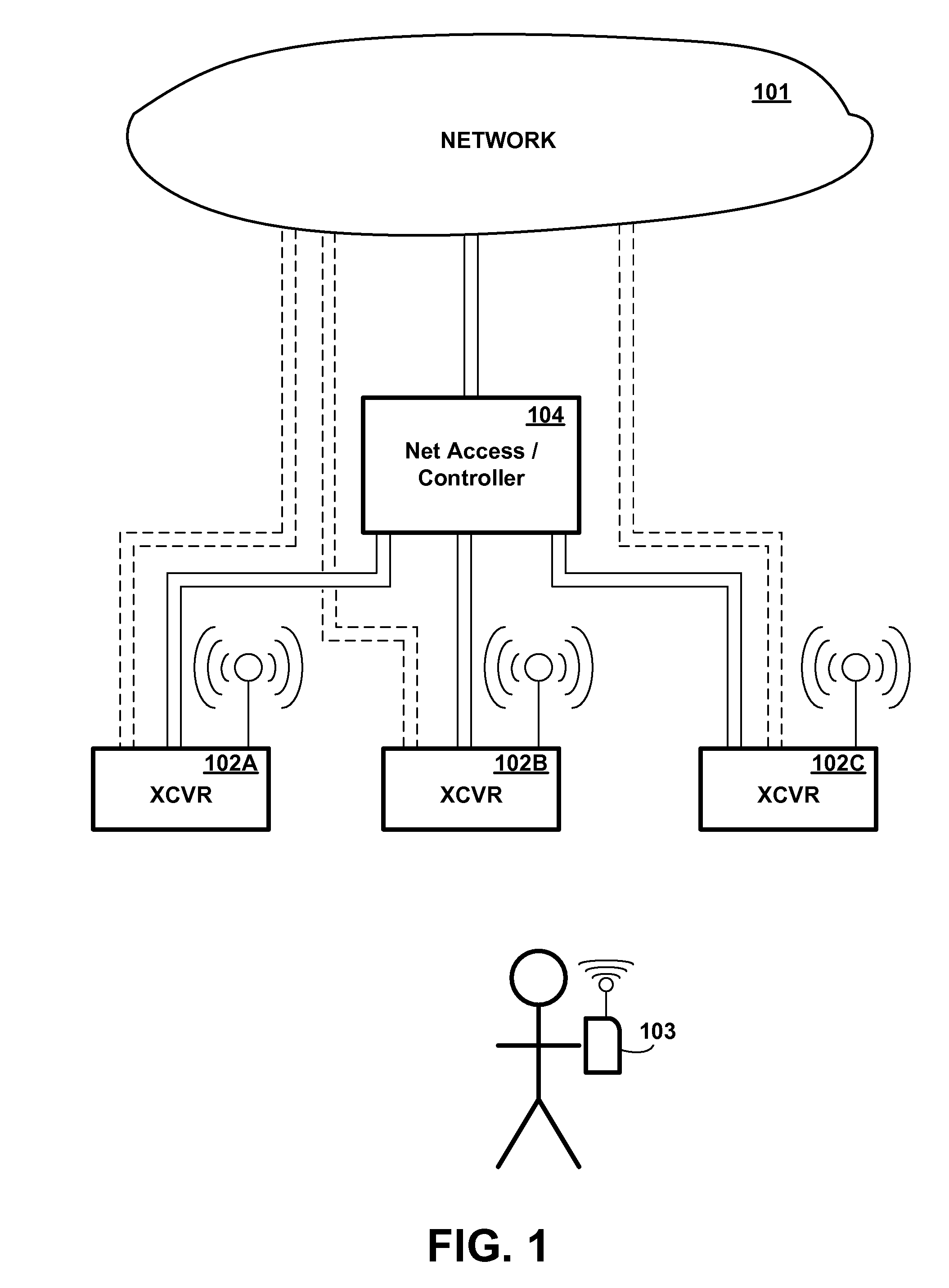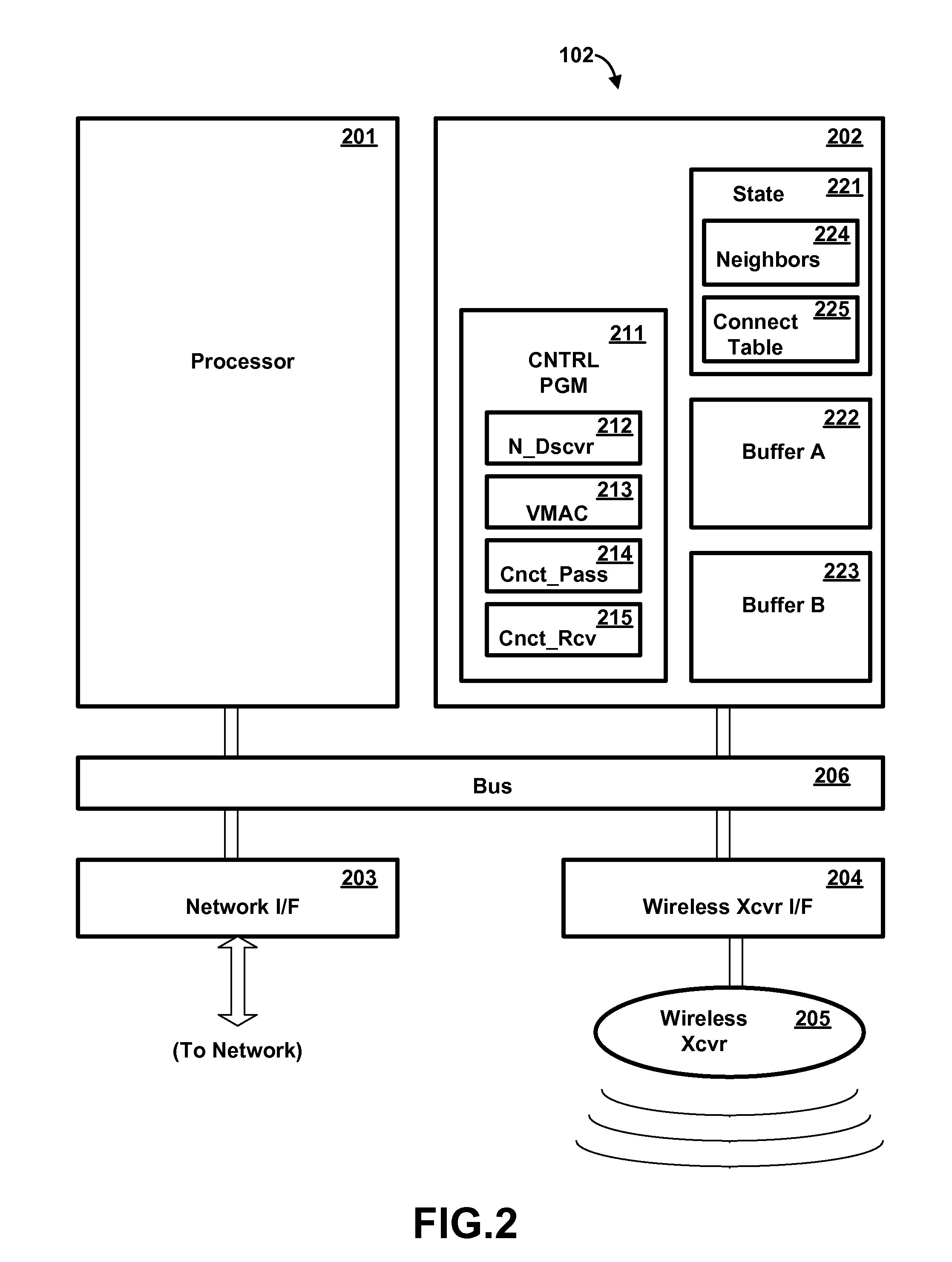Method and Apparatus for Maintaining Communications Connections Over a Distributed Wireless Network
a distributed wireless network and communication connection technology, applied in electrical devices, wireless communication services, network topologies, etc., can solve the problems of loss of connection, inability to maintain communication connections, so as to and increase the potential communication bandwidth
- Summary
- Abstract
- Description
- Claims
- Application Information
AI Technical Summary
Benefits of technology
Problems solved by technology
Method used
Image
Examples
Embodiment Construction
[0024]Referring to the Drawing, wherein like numbers denote like parts throughout the several views, FIG. 1 is a high-level illustration of an exemplary network environment, showing some of the major components involved in a system which automatically maintains a network connection with a mobile wireless device even as the mobile wireless device moves out of range of a wireless transceiver station, in accordance with the preferred embodiment of the present invention. As shown in FIG. 1, a network 101 is coupled to a network access device 104, which may also function as a controller, which is in turn coupled to multiple wireless transceiver stations 102A-C (herein generically referred to as feature 102), each having a different respective physical location. Although three transceiver stations are shown for illustrative purposes in FIG. 1, it will be understood that the number of stations may vary, and would typically be larger. Mobile wireless device 103 communicates with one or more...
PUM
 Login to View More
Login to View More Abstract
Description
Claims
Application Information
 Login to View More
Login to View More - R&D
- Intellectual Property
- Life Sciences
- Materials
- Tech Scout
- Unparalleled Data Quality
- Higher Quality Content
- 60% Fewer Hallucinations
Browse by: Latest US Patents, China's latest patents, Technical Efficacy Thesaurus, Application Domain, Technology Topic, Popular Technical Reports.
© 2025 PatSnap. All rights reserved.Legal|Privacy policy|Modern Slavery Act Transparency Statement|Sitemap|About US| Contact US: help@patsnap.com



